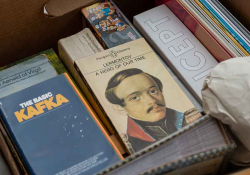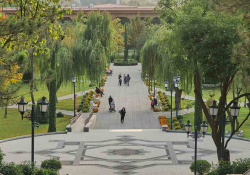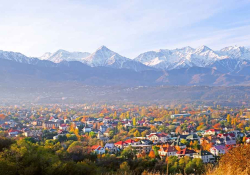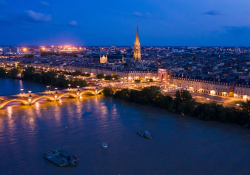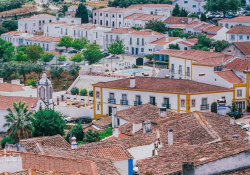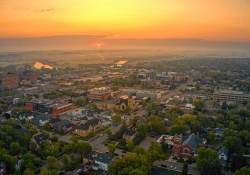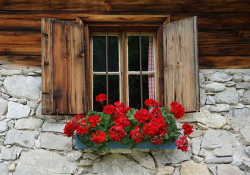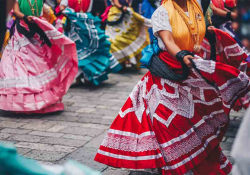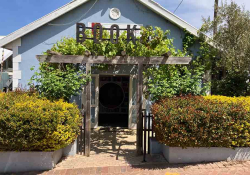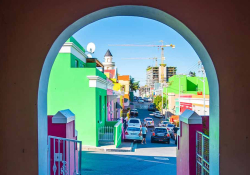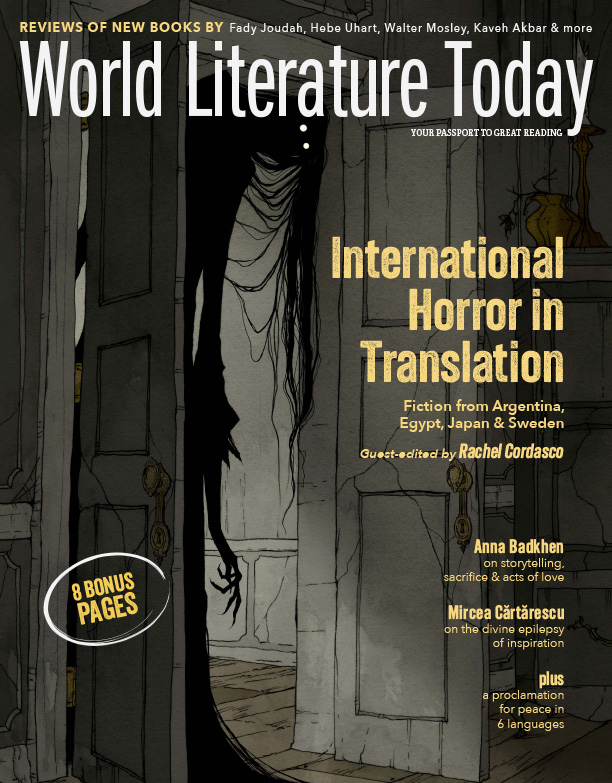Barcelona: Golden Threads of Catalonian Fleece
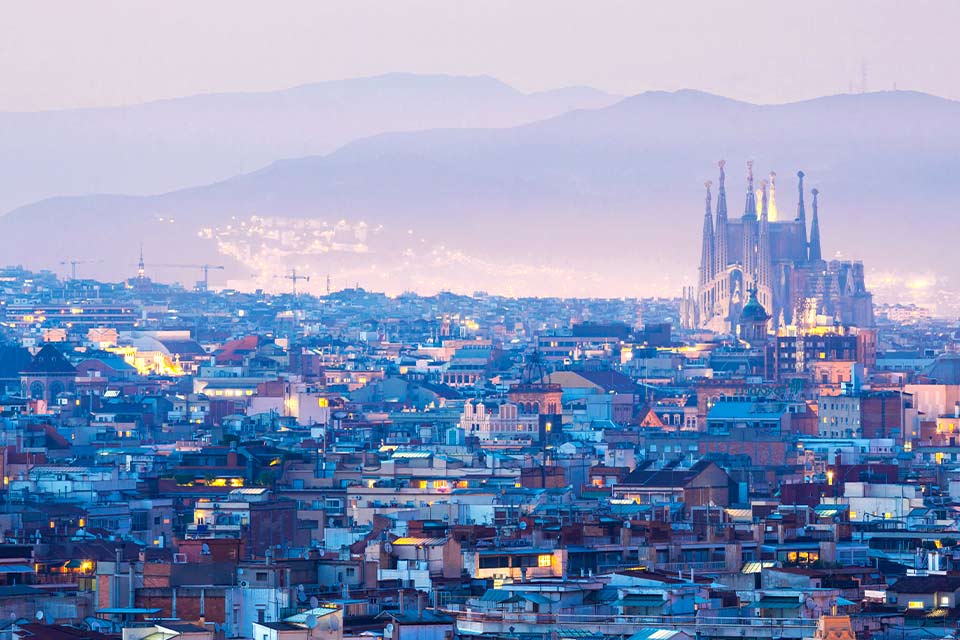
My amada and I arrived in Barcelona from Paris. We saw from the start the two cities have much in common. Both went through architectural reorganization in the latter nineteenth century. Both have obelisks, both have towers (Eiffel, and the human castellers). Both have a gothic pong of open sewer.
And rain. Great clouds, like scoops of gray mashed potatoes, heaped over the Collserola. The storm broke over the city, and we watched the rain from our corner room at the Hotel El Palace. We were the only ones lunching at the hotel; in the empty room, the clack of our olive pits on the plate, the rattle of ice in our sangrias were sounds of relief and warmth.
“Where is everyone?” we asked the waiter.
“They’re enjoying the rain!” he said. “The heat was like a boot heel on us; the rain lifted it off.”
We couldn’t stay in while everyone else was outside. So, we stood underneath the pelvic-bone balconies of Casa Batlló, watching the purple streaks of lightning, aahing at the thunder with the crowd; we looked through the orchestral scores at Casa Beethoven; we went to the Palau de la Música to hear the Barcelona Guitar Orchestra.
A conversation outside the theater: “Of course I want her back. I love her. I feel like Orpheus. He was a demagogue. Or a demigod. Or something. He went into Hell to get his wife back, but she’d turned into a pillar of salt.”
That kind of ambiguous, imprecise lusting was typical of Orpheus himself, and the allusion to him was apt. Orpheus, Thracian poet and musician, was also one of the Argonauts who joined Jason in his search for the Golden Fleece. One version of that legend is a hodgepodge of heroes and locations: Heracles was also there, there were eight other ships besides the Argo, the Iberia they sail for is not in the Caucasus (as the Greeks knew it) but the Catalonian coast. A typical progression occurs: storms, shipwreck, discovery, and the founding of Barca Nona, the ninth ship.
Another similarity between Paris and Barcelona: both love their books. But whereas literary Paris is hobbled with one foot stuck in the mud of celebrity (are there any serious people in the queue at Shakespeare and Company?), Barcelona pops with an energy bordering on fever.
High emotion breeds art, and in a country that has made high emotion a national pride, Catalonia is something of a trendsetter. Besides being the home of that one temperamental, innovative artist (and that other one), it has birthed a literature of hope and scandal. Víctor Català’s Solitude, Josep Maria de Sagarra’s Private Life, Monserrat Roig’s Goodbye, Ramona. I saw all these at Llibreria Ona, a bookstore and cultural center on Pau Claris.
These Catalan books were beside other, foreign books translated into the language: Woolf’s La senyora Dalloway, Tolstoy’s Guerra i pau, and Colm Tóibín’s Mares i fills. There was a small section set aside for other languages (among them, Castilian Spanish), given over exclusively to translations of Catalan writers.
We had asked that same waiter at El Palace about the language. He spoke it, but only at home—work was given over to English or Castilian. “It’s difficult to live in Barcelona in Catalan,” said Iolanda Batallé, Ona’s director and author of Faré tot el que tu vulguis (I’ll Do Anything You Want). “But fighting for any minority language is also fighting for diversity.”
Making Catalan the only option is Ona’s way of elevating the language. There are around nine million speakers of Catalan, and the writing industry is comparatively strong: thousands of books a year are published in the language. Our progression was Grecian, through a storm to discovery. We left with titles by Alicia Kopf, Joan Sales, and Mercè Rodoreda; some golden threads of this Catalonian fleece.
Gladstone, Manitoba

